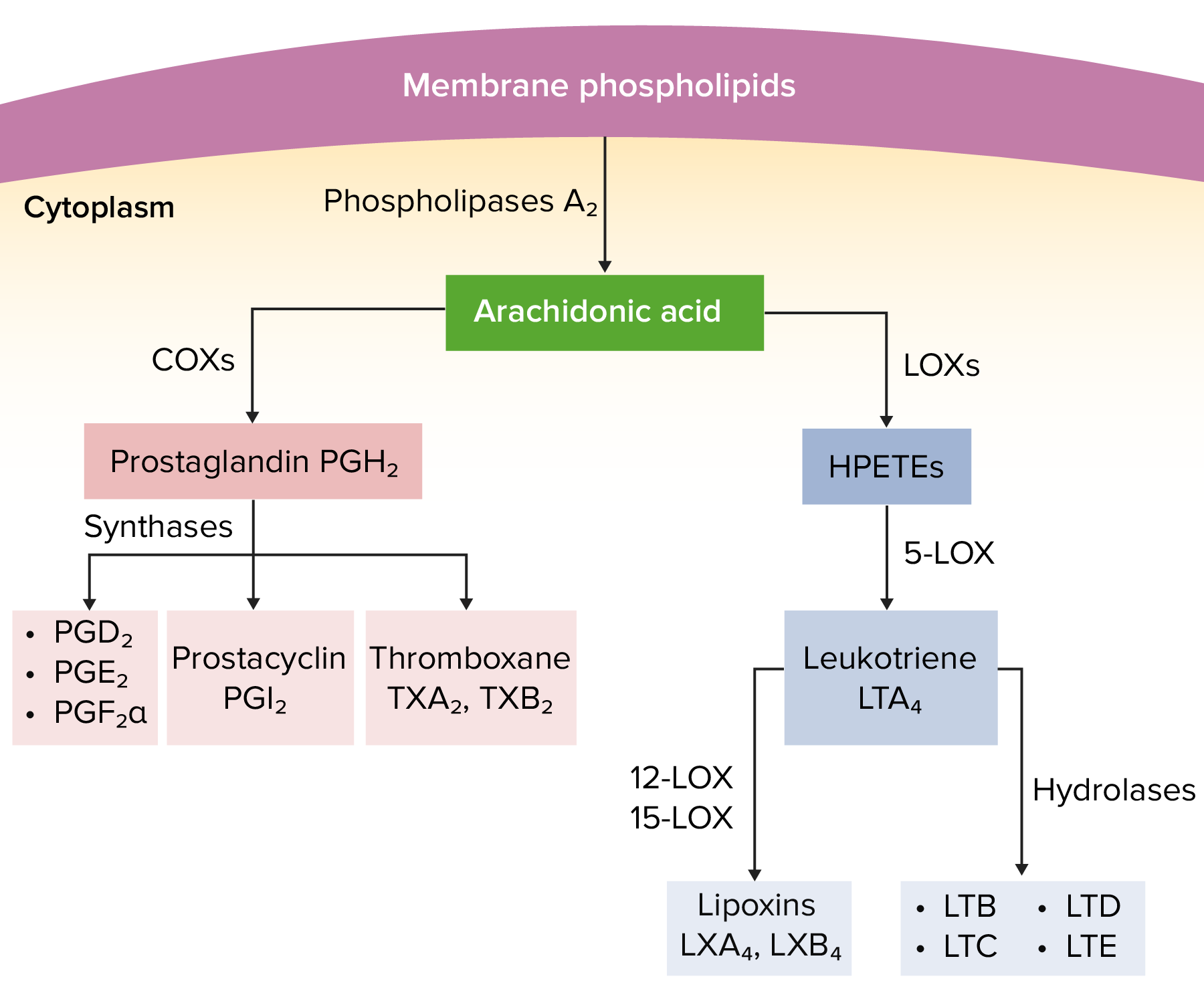Playlist
Show Playlist
Hide Playlist
Non-steroidal Anti-inflammatories – Analgesics, Case Reports and Obstetrical Pain
-
16 -Analgesics case reports and obstetrical pain.pdf
-
Download Lecture Overview
00:00 Commonly used drugs as well are non-steroidal anti-inflammatories. 00:05 The great grandfather of all these drugs is aspirin, ASA. The newer drugs tend to be either relatively short acting and low potency like ibuprofen, or they can be very long acting and have very profound effects on the cyclooxygenase enzymes, COX-1 and COX-2, and reduce the production of prostaglandins, which are present in inflamed tissues. So, the reduction in inflammation reduces pain, so that's where they become analgesics. 00:41 They also reduce the recruitment of leukocytes, white blood cells, which produce inflammatory mediators. So they both go in and help moderate inflammation and prevent further inflammation from forming. So, side-effects of non-steroidals are not inconsequential either, unfortunately. 01:05 And gastric hemorrhage is still a relatively common event in people who were taking high doses of these drugs. They're very irritating to the gastric mucosa. In addition, they interfere with platelet function, so they interfere with clotting. So once bleeding starts, they tend to cause a lot of bleeding. They also cause renal toxicity. And one of the more common causes of renal failure in the western world is excessive use of non-steroidal anti-inflammatory agents. Specific drugs, ASA, even though it's the original non-steroidal, has virtually no effect on the kidney, but it has lots of effect, bad, on the stomach. 01:47 Acetaminophen interestingly has virtually no anti-inflammatory effect. It does not cause bleeding, it does not have any negative effect on the kidney. But it's unfortunately becoming one of the commonest reasons for liver transplant in North America, as people overdose on it or take too much for their pain management, because it's directly toxic to the liver. So, as I already mentioned, Ibuprofen is relatively short acting. Other drugs such as Naproxen, or Ketorolac, or Diclofenac are longer lasting. They all have the same negative renal and gastric effects, but they also likely have cardiac effects that we haven't really been aware of in the past. And we didn't really learn much about this until a class of drugs called COX-2 inhibitors were introduced, with the expectation of fewer side effects, particularly gastric, but also less bleeding. 02:44 And this was, these drugs were pushed incredibly aggressively, particularly to orthopedic surgeons, and were extremely widely used. The one that you may have heard of was Vioxx. 02:56 And, after about five years of use, it was discovered that the incidence of ischemic cardiac events, myocardial infarctions and death, in people taking these drugs was quite high. And they were finally stopped. And the interesting thing from a historical perspective is that one of the drug, not regulatory bodies, but examination bodies at my own university, actually published the problem with, the potential problem with cardiac disease years in advance of this drug being taken, these drugs being taken off the market, and it was largely ignored.
About the Lecture
The lecture Non-steroidal Anti-inflammatories – Analgesics, Case Reports and Obstetrical Pain by Brian Warriner, MD, FRCPC is from the course Anesthesia.
Included Quiz Questions
Which description applies to nonsteroidal anti-inflammatory drugs (NSAIDs)?
- Interfere with platelet function and can cause renal damage
- Act on receptors in the central nervous system
- Can be used as amnestics
- Are used in the treatment of gastric hemorrhage
Which of the following is a short-acting and low-potency NSAID?
- Ibuprofen
- Aspirin
- Meloxicam
- Acetaminophen
- Naloxone
Which of the following medications causes acute liver failure?
- Acetaminophen
- Aspirin
- Naloxone
- Meloxicam
- Ibuprofen
Customer reviews
5,0 of 5 stars
| 5 Stars |
|
5 |
| 4 Stars |
|
0 |
| 3 Stars |
|
0 |
| 2 Stars |
|
0 |
| 1 Star |
|
0 |




